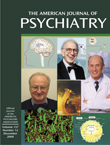The 5-Year Clinical Course of High-Functioning Men With DSM-IV Alcohol Abuse or Dependence
Abstract
OBJECTIVE: One goal of diagnostic criteria is to predict the course of clinically relevant future problems. This study evaluated the ability of the DSM-IV categories of alcohol abuse and alcohol dependence to predict the onset and cessation of the 11 DSM-IV abuse/dependence criterion items. METHOD: The DSM-IV categorical approach was used to determine alcohol diagnoses for 435 highly educated young adult men, who constituted 97.3% of the 447 men appropriate for this study. Structured face-to-face follow-up interviews were administered 5 years later. RESULTS: At the beginning of the study, 14.5% (N=63) of the subjects were alcohol dependent, 18.2% (N=79) reported alcohol abuse, and 67.4% (N=293) carried no alcohol diagnosis. Across these three diagnostic groups, 68.3%, 46.8%, and 15.4%, respectively, experienced at least one of the 11 DSM-IV abuse/dependence criterion items over the next 5 years. Only 11.4% of those who reported alcohol abuse went on to develop alcohol dependence. In addition to their diagnosis, characteristics that predicted subsequent problems with alcohol included a family history of alcoholism, higher levels of alcohol intake and a greater number of alcohol problems in the 10 years preceding the diagnosis, and a history of drug use. CONCLUSIONS: Even in this highly educated and high-functioning group of men, alcohol abuse and dependence predicted the onset and cessation of alcohol-related problems.



